It may be surprising to learn that a lot of the food you throw away is actually completely usable. The amount of food the population wastes has become a major issue contributing to global warming, world hunger, and water shortages. According to the Food and Agriculture Association of the United Nations, 28 percent of the world’s agricultural land is used to produce food that is lost or wasted.
While food waste is a serious problem, we can help be part of the change to solve this issue. Reducing the amount of food you waste can actually lead you to new recipes and ways to use food that you’ve never thought of before. Check out this list for innovative ways to use food that you’d usually throw in the trash.
1. Make Broth
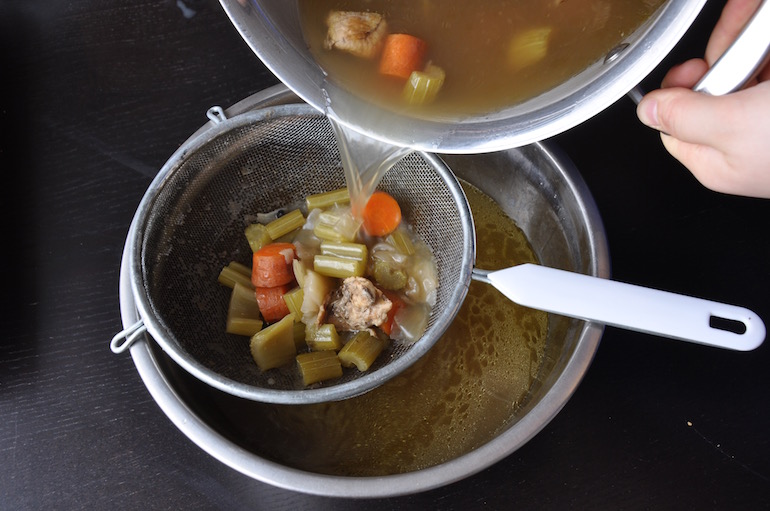
Photo by Helena Lin
All of your vegetable and meat scraps can be used to make a tasty homemade broth that will beat the taste and price of any brand you would buy in stores. Save carrot peels, celery leaves, onion skins, mushroom stems, green onion ends or any other vegetable scraps and freeze them until you accumulate a good portion. Boil these scraps in water with any other herb or flavoring agent, strain, and enjoy.
You can do the same thing by simmering meat scraps, carcasses and bones to create beef, pork or chicken stock.
2. Infusions
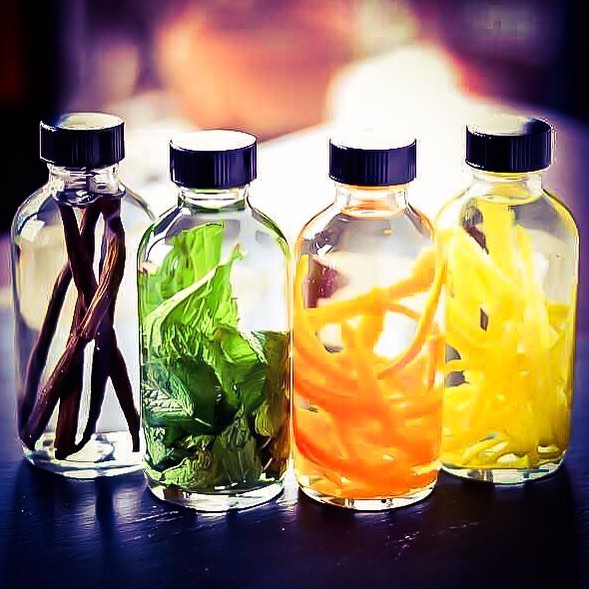
Photo courtesy of @saltcityvodka on Instagram
You can use fruit peels to make delicious flavor-infused olive oils, liquors, or water. The peels or zests of oranges, lemons, grapefruits, lime, and tangerines work the best, but feel free to experiment. The longer you leave the peel in the substance, the stronger the flavor will be.
#SpoonTip: Make sure you strain the peel or zest before enjoying your infusions.
3. Grow a New Plant
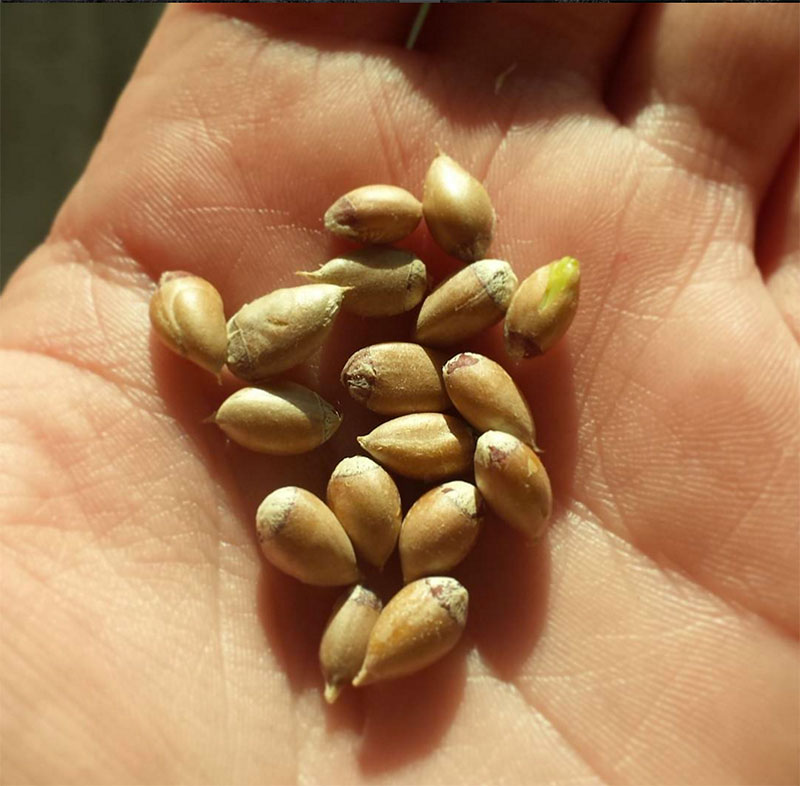
Photo courtesy of @wanderingwicker on Instagram
If you want to grow your own plant, you can use the ends, pits and seeds of many different produce. This includes the tops of pineapples, the seeds of lemons, and the pits of plums, peaches and avocados. Be patient though because these plants can take years to bear fruit, but it will be well worth the wait.
4. Flavor, Freshen and Fertilize

Photo by Haley Greco
Coffee rule number one: never throw away your left-over ground joe. After it provides you with the caffeine necessary for survival, coffee grounds are still incredibly useful. They serve as an extremely effective fertilizer in potted plants and gardens, a super flavorful component of homemade steak rubs, a base for homemade java-scented air fresheners, and an assortment of other purposes.
5. Vegetable Dishes
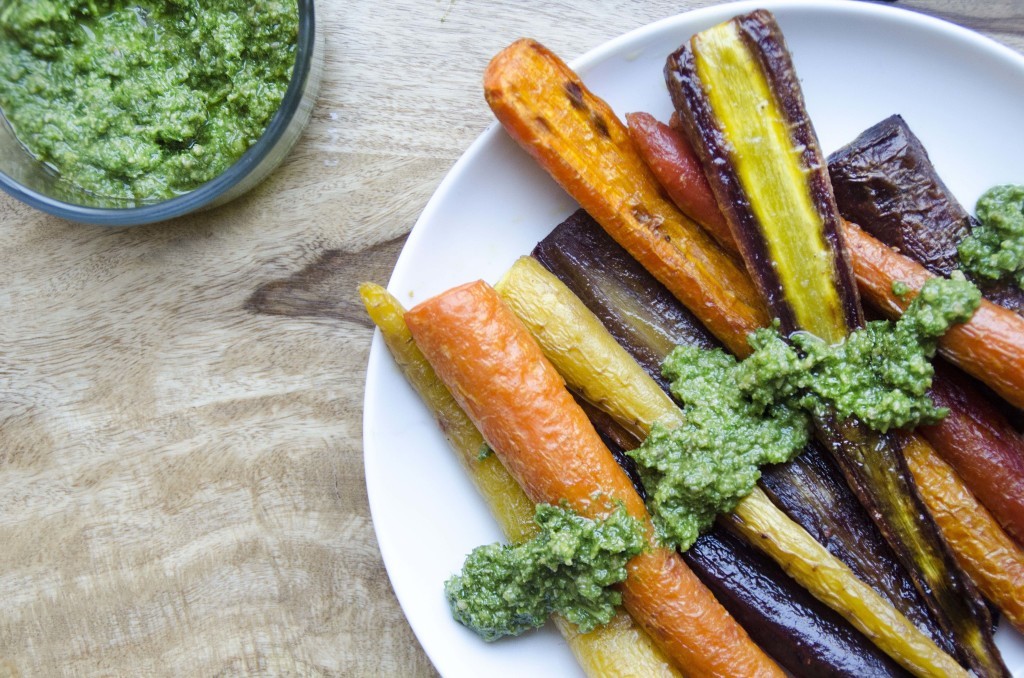
Photo by Becky Hughes
People often throw away the leaves of beets, celery, carrots and turnips. However, these greens are ingredients in some very tasty and trendy recipes and certainly do not belong in the trash. You can make anything from Roasted Carrots with Carrot Top Pesto to Broccoli Stem & Feta Hummus.
6. Baked Goods
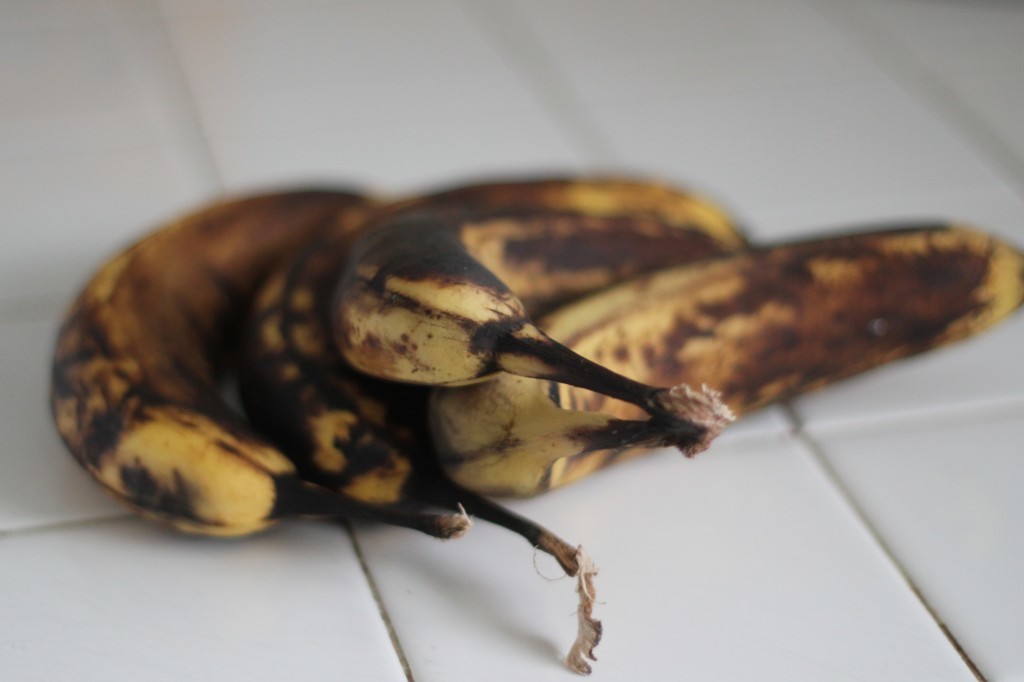
Photo by Mandy
Most people like their bananas a little spotted, but nobody likes a banana that’s completely blackened. You might think there’s no hope for that banana but you’re wrong. All too often people waste ripened bananas that could be the perfect addition to muffins, breads, and other baked goods. You can also freeze the banana and blend it for this frozen dessert that’s a lot like ice cream.
7. Pickle Things

Photo courtesy of @Jessicabose Instagram
After you eat the last pickle in the jar, don’t pour that juice down the drain. Instead, throw any other vegetable in the brine and restart the pickling process. You can use a variety of veggies like canned green beans, artichokes, onions, cucumbers, and even hardboiled eggs. If you don’t want to pickle anything, chug that pickle juice to help cure a wicked hangover.
8. Compost

Photo courtesy of @abefreedom on Instagram
If you can’t think of anything else to do with your food scraps, a lot of it can be used to make compost. You can compost all fruit and vegetable scraps (even if they’re rotten), egg shells, old bread products and countless other items. Compost is one of the best ways to fertilize soil for gardening because it’s free and all natural.
With endless possibilities, we should very rarely have to waste food. That means next time you’re about to throw a piece of food in the garbage, consider first how you could make it useful.




